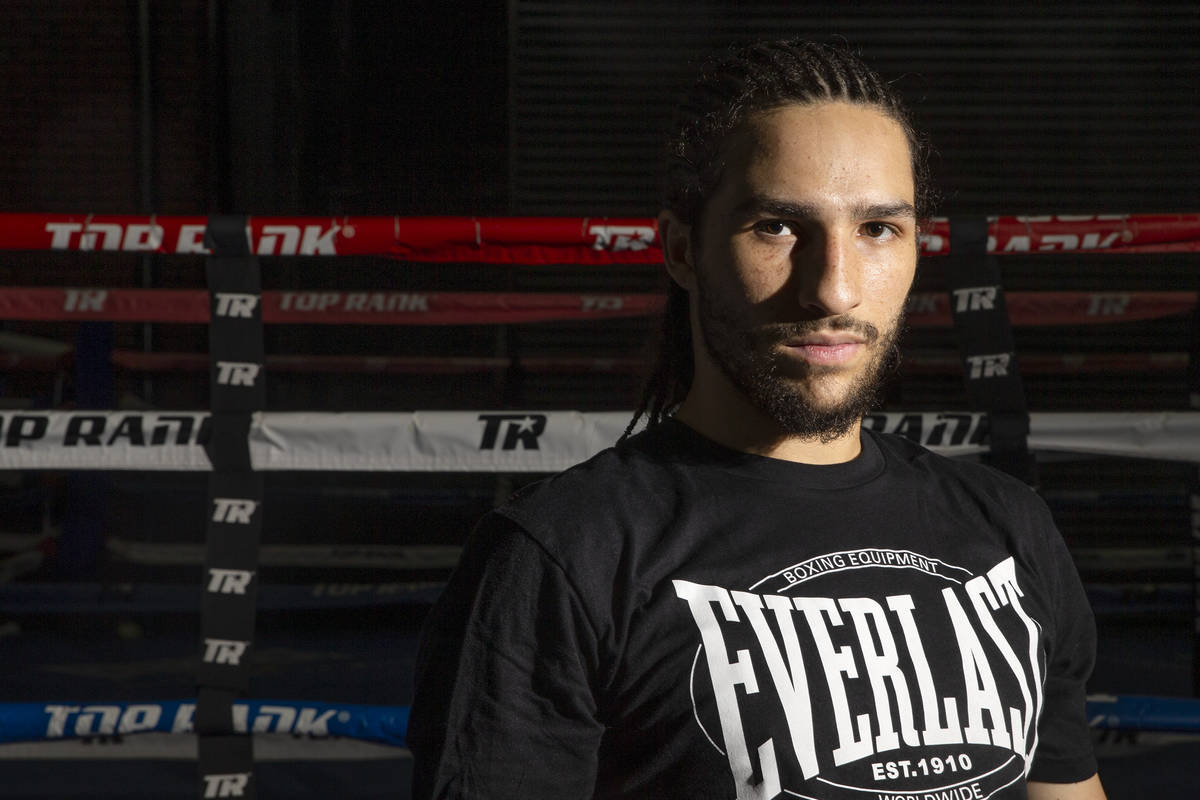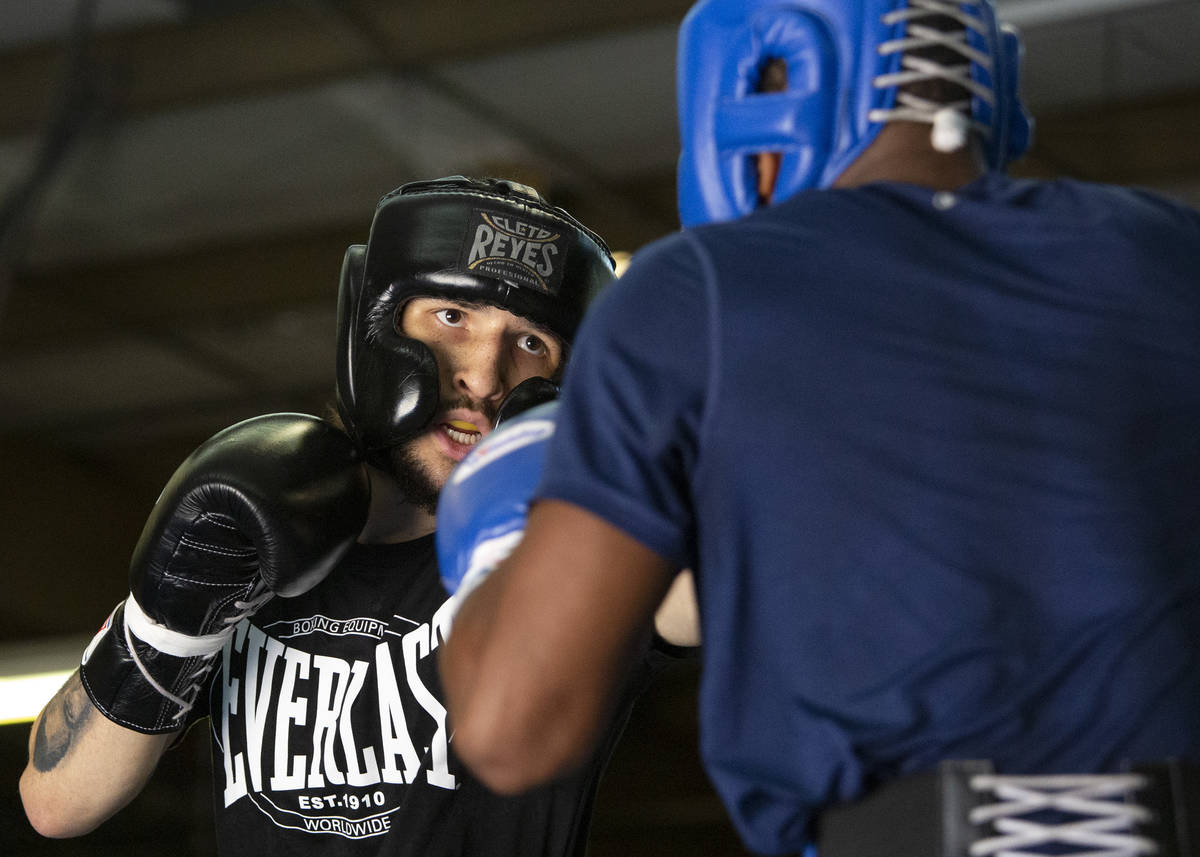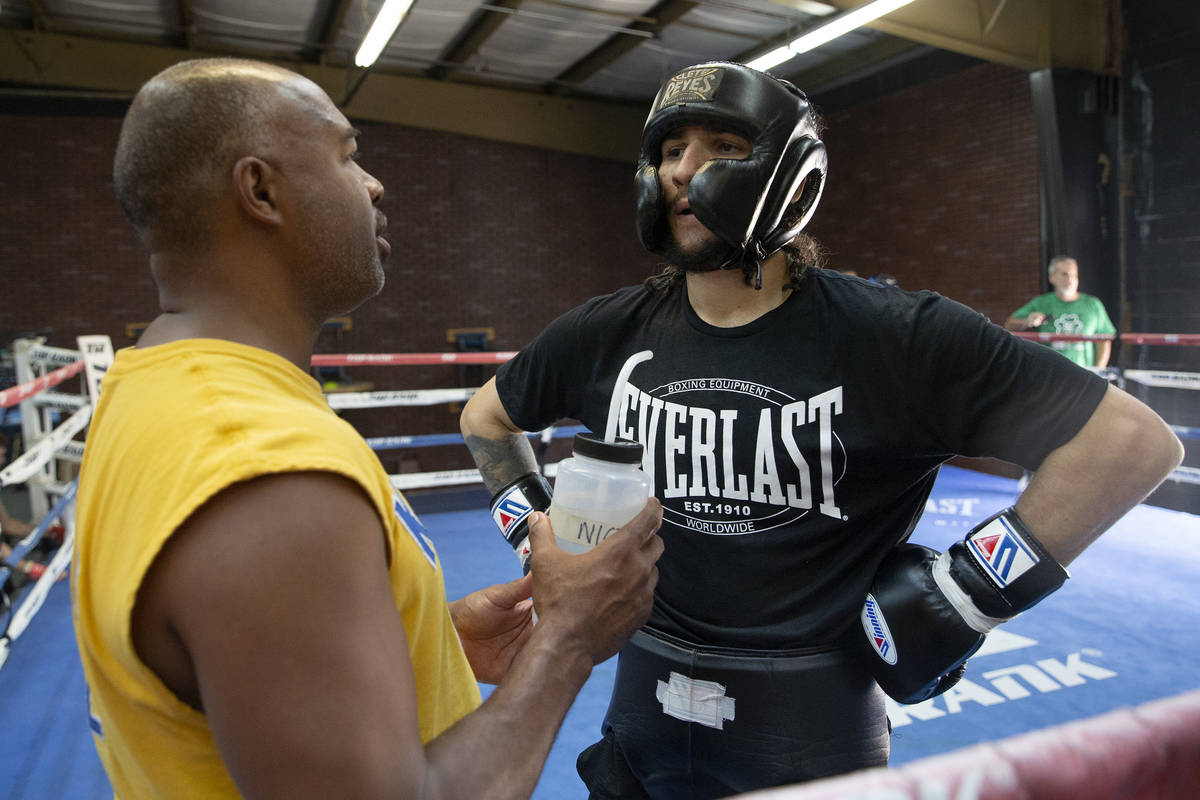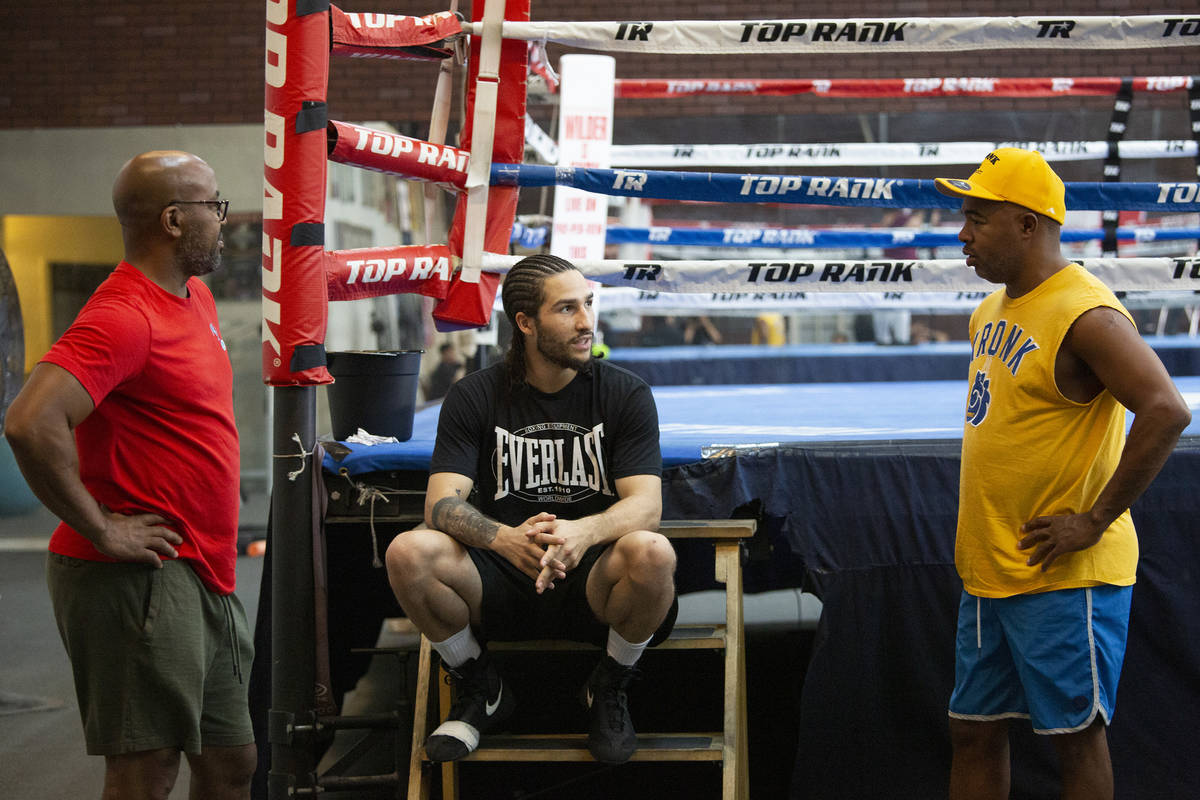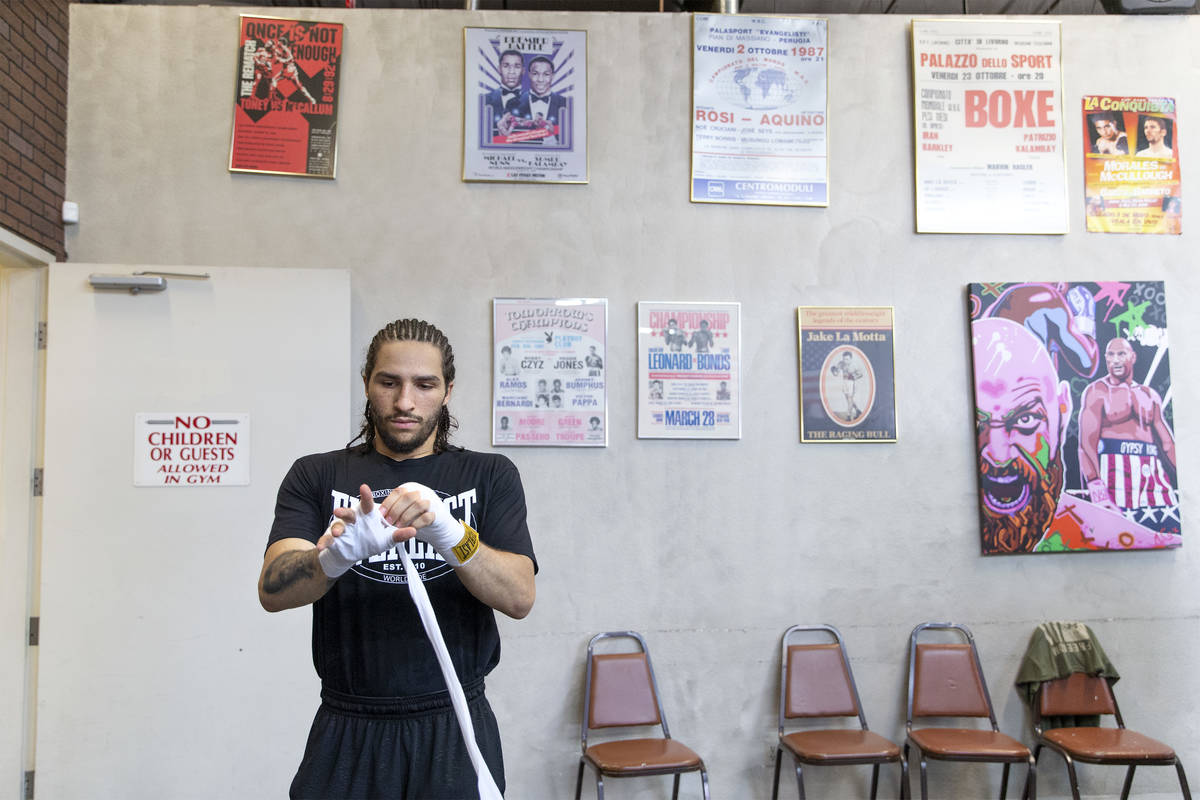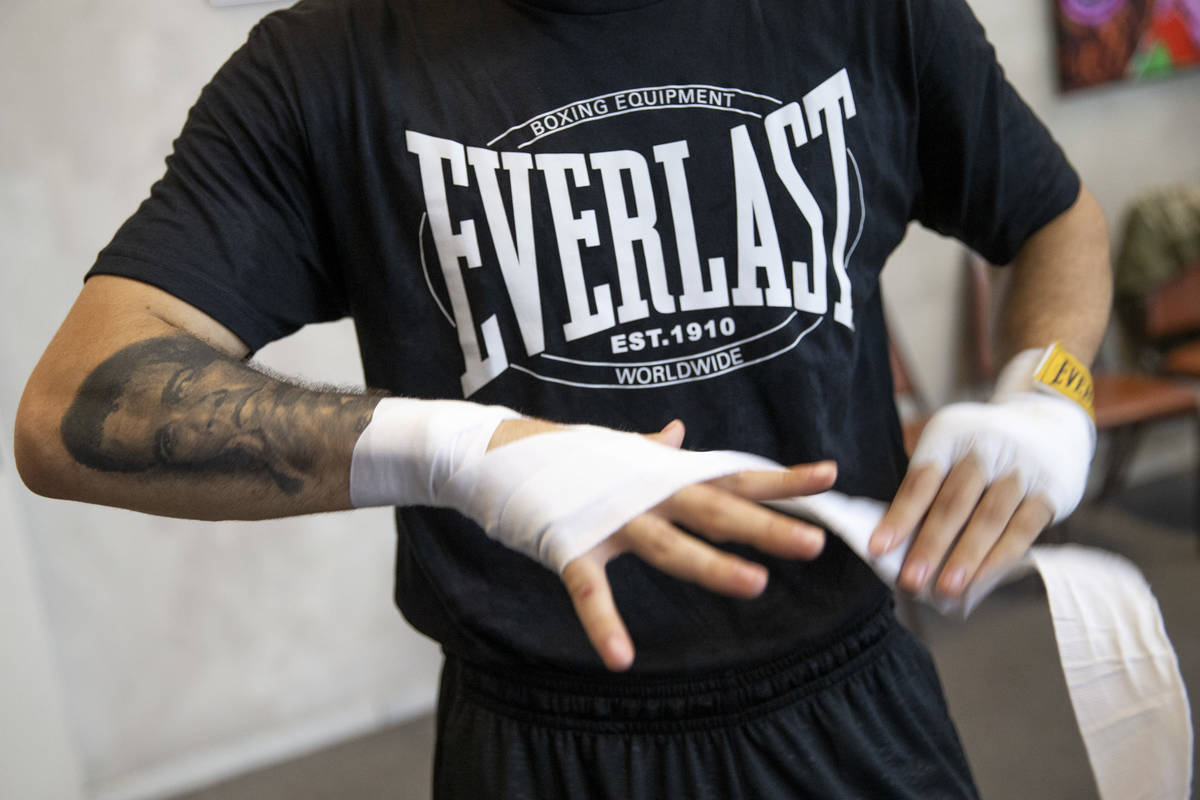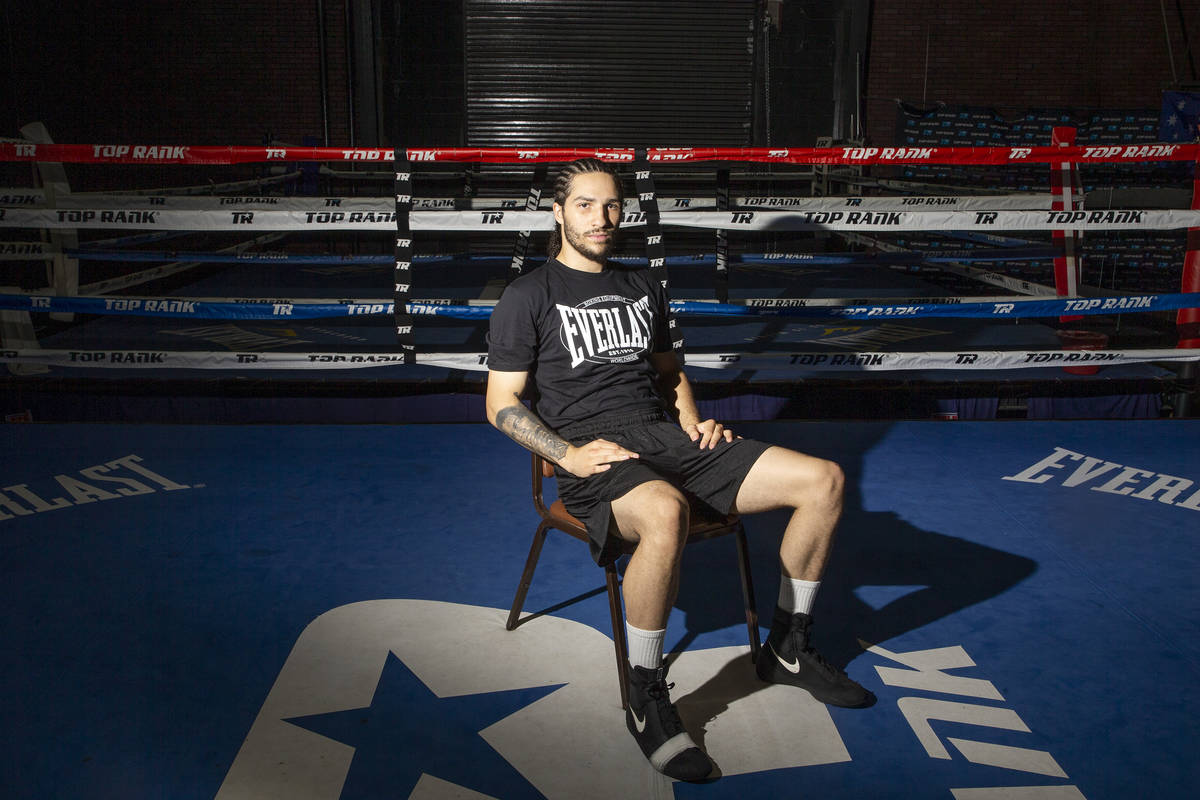Grandson of the Greatest: Ali Walsh seeks own boxing legacy
A black boxing glove covers most of the black and grey ink that’s tattooed into Nico Ali Walsh’s right forearm as he spars one July afternoon at Top Rank’s gym in Las Vegas.
But it doesn’t completely cover Muhammad Ali’s soft, gentle eyes. For they peer over the leather edges and into the boxing ring, where his 21-year-old grandson is training tirelessly to honor his legacy.
Training to forge his own.
“At no point did I feel like I had to box. It was always something that I loved to do,” said Ali Walsh, a Bishop Gorman graduate and UNLV student. “A lot of people in my family didn’t want me to box. I’m not doing it because I was forced into it. It’s just a love of mine. I’m pursuing my dreams at this point.”
Ali Walsh will continue the pursuit of those dreams Saturday at Hard Rock Hotel and Casino in Tulsa, Oklahoma, where he’ll make his professional boxing debut under the Top Rank promotional banner — some 60 years after his grandfather began the greatest career in heavyweight history.
The jovial middleweight doesn’t just feel the pressure. He embraces it, perhaps now more than ever before, knowing that the world will be watching.
Analyzing.
Comparing.
“He knew he was delving into a career that’s not going to be easy,” said Ali Walsh’s mother and Ali’s daughter, Rasheda. “But he knew in the beginning he wasn’t going to try and duplicate his grandpa’s career: ‘I just want to be the best Nico I can be.’”
A blessing from Poppy
To the world, Ali was the one of the greatest athletes ever. An icon who fought for glory in the ring — and for the people outside of it. To Ali Walsh, he was Poppy. The affable grandfather with whom he couldn’t wait to watch Western and horror movies.
Whose magic tricks would mystify him.
Ali Walsh has lived most of his life in Las Vegas, but was born in Chicago and would visit Ali at his Michigan home and later at his Arizona abode. Boxing was a secondary component of their relationship. Maybe even tertiary until Ali Walsh developed an independent interest in the sport.
Rest assured, though: Ali Walsh noticed the boxing gloves and posters laying around his grandfather’s homes. “I’ve been around boxing my whole life,” he says.
That said, he didn’t begin boxing until he was 10 or so, dabbling in other sports instead. His uncle and manager, Mike Joyce, recruited him to fight in an exhibition in Chicago to raise money for the St. Baldrick’s Foundation, which aims to find cures for childhood cancer.
Spectators in attendance called for Ali Walsh to do his grandfather’s famous “Ali Shuffle.”
“He had a lot of fun with it,” Joyce said. “To him, it was almost like dancing and performing.”
Ali Walsh conceded that the exhibition “put a bug in him” that would go on to ignite a more palpable passion for the sport. He acquired his own pair of gloves and would ask other kids in his Las Vegas neighborhood if they wanted to box. Nothing too serious at that time. Just a couple rounds here and there for fun.
But as he prepared to enter high school, his focus intensified and he started soliciting his grandfather’s thoughts as he contemplated pursuing a career in boxing.
“They just started to kind of bond in that respect,” Ali Walsh’s mother said. “I was hoping that Daddy would tell him ‘No, this isn’t the path for you. Maybe you should do something else.’”
Ali Walsh, then 14, secretly hoped for that, too, “but he kept insisting yes. So I knew that it was something that I had to continue.”
With Ali’s blessing, Ali Walsh starting plodding down the path that would eventually take him to Tulsa. He began training every day and seeking out amateur competition, debuting as a 15-year-old on Nov. 15, 2015, at the 40th annual Gene Lewis Boxing Tournament in Mesa, Arizona.
Ali had relocated to Arizona and was supposed to attend the fight, but complications from Parkinson’s disease prevented him from watching Ali Walsh lose his amateur debut. They instead met afterward, and Ali shared some sage advice with his grandson that would help propel him to this point.
“Chalk it up to experience. It’s not the end of the world. You don’t have to be undefeated to be the Greatest,” Ali told Ali Walsh. “It’s part of the journey. Enjoy this journey. It’s an opportunity to look back and say ‘I did that wrong. I did that wrong.’”
And in an instant, the discouragement dissipated.
“After the defeat, I knew he was going to stay with it,” Rasheda Ali said.
Creating a legacy
Ali Walsh swore he would never get a tattoo. They weren’t for him. But his stance softened on June 3, 2016, when Ali died from septic shock after a lengthy battle with Parkinson’s.
Two portraits of Ali — flanked by butterflies — are inscribed into Ali Walsh’s arm now, serving as permanent reminders of where he came from and where he can go. He delved that much deeper into boxing after losing his grandfather, committing himself to the pursuit of a professional career.
He would travel the region seeking out additional amateur fights, but was often rebuffed at tournaments that didn’t feature opponents in his weight class. Yet he persisted and sought sparring against better, more experienced competition — even leaving Las Vegas for weeks at a time with no fight scheduled to train alongside seasoned professionals in Big Bear, California, with famed trainer Abel Sanchez, formerly of Gennady Golovkin’s corner.
“No contact with the real world. It was probably really lonely and all that other stuff,” Joyce said. “But he stuck it out up there. … He started to see what it takes to become a fighter, as a profession.”
With roughly 30 amateur fights to his name, Ali Walsh signed a professional contract with Top Rank and chairman Bob Arum, who promoted more than 25 of Ali’s fights beginning in 1966.
Ali Walsh said fighting for his grandfather’s former promoter makes the beginning of his career all the more special.
“Hopefully it won’t be a short journey. It’ll be a much longer journey. But that depends on his ability in the ring,” Arum said. “Nico has the name and the lineage. … He thought that he had the ability to excel in boxing. To become a star and become a champion. There’s great upside if he can come through.”
Ali Walsh spent the summer training in Las Vegas under the guidance of SugarHill Steward, who also trains WBC heavyweight champion Tyson Fury. Steward acknowledged that Ali Walsh is still relatively raw, but believes he possesses the requisite talent and tools to someday grow into a legitimate contender.
His first fight will be a four-round affair against Jordan Weeks.
Ali Walsh doesn’t expect to duplicate his grandfather’s legacy, nor does he want to. He plans only on honoring it while forging one of his own.
“Once I make myself proud and my family proud for what I’m able to do, then I’ll know that I continued this legacy that I hold so dear to me,” he said. “After that, then I’ll be happy. … It feels like I’m stuck behind a shadow at times, but it’s embracing my name and embracing the legacy.”
Contact reporter Sam Gordon at sgordon@reviewjournal.com. Folow @BySamGordon on Twitter.



